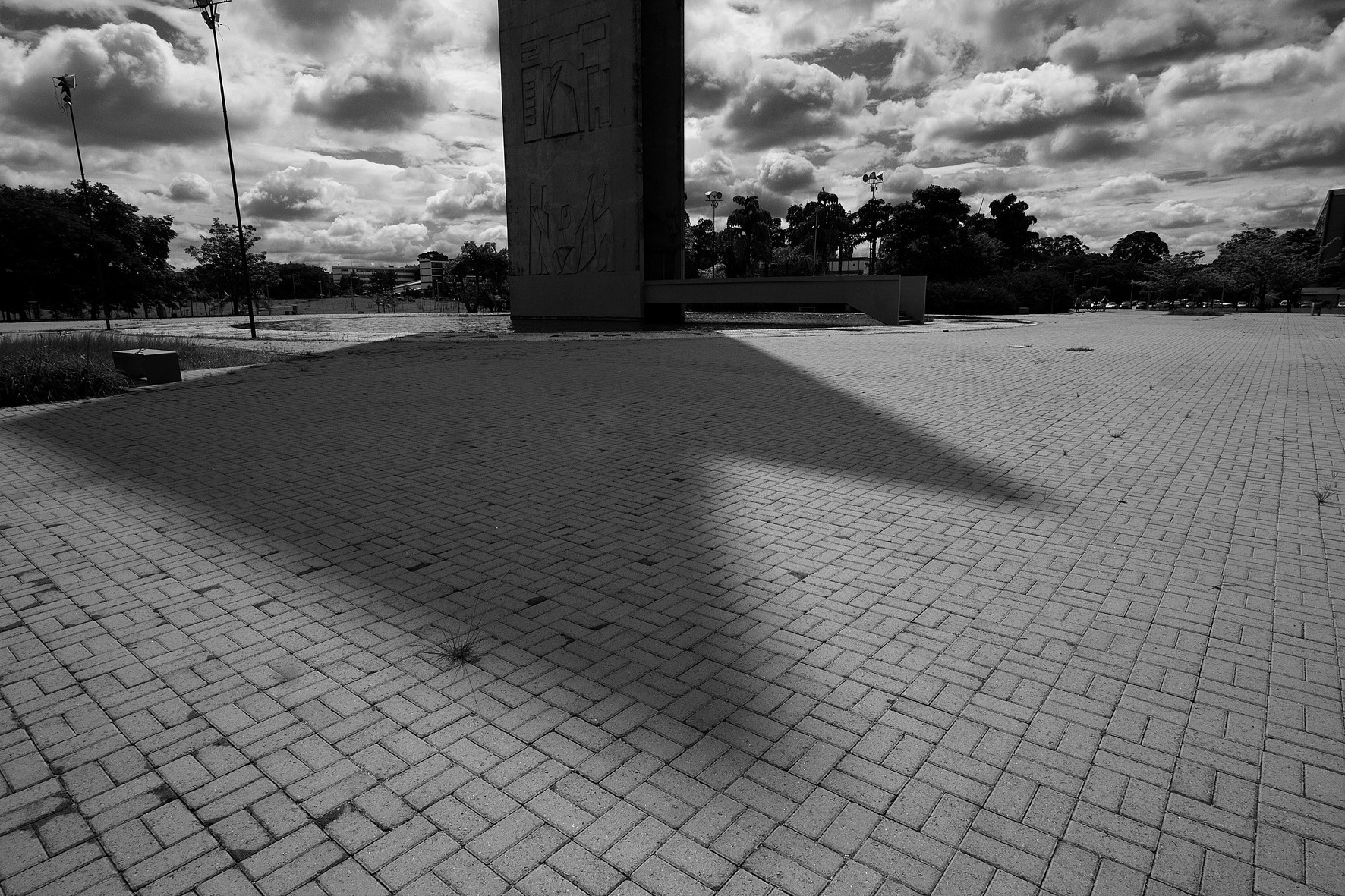Guidelines for registering NACE proposals
Guidelines for registering NACEs’ reports and extension requests
Support Center for Nursing in Collective Health
(NACE – AENSC – Núcleo de Assistência de Enfermagem em Saúde Coletiva)
The Support Center for Nursing in Collective Health (NACE – AENSC) has the following goals: to elaborate and implement collective healthcare educational and assistance programmes; to participate in the elaboration and revision of technical norms that guide health services and practices;
Forestry Studies and Extension Center of USP-RP (CEEFLORUSP)
(NACE – CEEFLORUSP – Centro de Estudos e Extensão Florestal da USP-RP)
The Forestry Studies and Extension Center of USP-RP (CEEFLORUSP) is a Center of Support to Culture and Extension (NACE – Núcleo de Apoio a Cultura e Extensão) located in the Botany Sector of the Biology Department of the School of Philosophy, Sciences, and Languages of Ribeirão Preto. It was created after the implementation of the USP Forest Project (1997 to 2004), which was conceived to restore part of the semideciduous seasonal forest, lost due to the
Center of Dental Diagnostic (NACEDO)
(NACE – NACEDO – Núcleo em Diagnóstico Odontológico)
The Center of Dental Diagnostic (NACEDO) is based on the attendance of patients who need a dental diagnosis, specially radiographic, or by image. NACEDO sees patients from FORP (School of Dentistry of Ribeirão Preto – all clinical and research disciplines), SUS, linked to the Family Health Centers, Ribeirão Preto City Hall, and others in the region, as well as private patients referred by professionals in the region.
Center of Entrepreneurial Management Support (NAGE)
(NACE – NAGE – Núcleo de Apoio à Gestão Empreendedora)
The Entrepreneurial Management Support Center (NAGE), is a project created by professors of Professional Master’s Degrees in Entrepreneurship and provides an opportunity to apply the knowledge acquired to solve problems experienced by professionals who work in entrepreneurship and innovation projects. NAGE has the format of a consulting project office for the segments of entrepreneurship and innovation.
Center for Social, Cultural and Extension Activities Support (NASCE)
(NACE – NASCE – Núcleo de Apoio às Atividades Social, Cultural e de Extensão)
The Center for Social, Cultural, and Extension Activities Support (NASCE) is linked to EACH – School of Arts, Sciences, and Humanities (USP Leste). Since 2004, NASCE offers support to university extension actions, professionalizing and improvement courses, cultural activities, and guidance in several areas, such as health, education, culture, leisure, and income generation. Its main goal is to promote the integration between the
Center of Communication and Education (NCE)
(NACE – NCE – Núcleo de Comunicação e Educação)
NACE-NCE’s goals are to contribute to the spreading of the concept of Educommunication, creating indicators that guarantee the epistemological coherence of its use by those who approach it intending to promote Educommunicative practices, especially in the scope of public policies, to collaborate with the Department of Communications and Arts in the consolidation of the Degree in Educommunication; to attend the demand for extension, improvement, and specialization courses, both online and distance, on the theme of Educommunication; to offer advice to the public power and private initiative in the debate and implementation of actions in the field of Educommunication; to preserve the NCE collection, to guarantee the preservation of the memory of its projects for future generations of researchers and managers of the field; to promote meetings, symposiums, and publications on the theme of Educommunication.
Center for Socio-environmental Entrepreneurship and Administration in the Third Sector (NEATS)
(NACE – NEATS – Núcleo de Empreendedorismo Socioambiental e Administração em Terceiro Setor)
NEATS works with public agencies, companies, and civil society organizations through partnerships, contracts, and working agreements, which are conducted by high-level technical teams made up of teachers, researchers, and undergraduate and graduate students from FEA/USP and other USP units. It maintains already established partnerships with academic entities since 2001 with SEKN – Social Enterprise Knowledge Network, for
Center for Bioethics Studies (NEB)
(NACE – NEB – Núcleo de Estudos de Bioética)
The Center for Bioethics Studies (NEB) mission is to be a pole for the dissemination and implementation of bioethical knowledge using the following actions: interchange with national and international institutions that deal with bioethics for training and improvement of professionals in the area; development of joint research;
Center for Extension and Culture in Afro-Brazilian Arts (NECAAB)
(NACE – NECAAB – Núcleo de Extensão e Cultura em Artes Afro-Brasileiras)
The Center for Extension and Culture in Afro-Brazilian Arts (NECAAB) is proposed as an interdisciplinary space for teaching, research, and experimentation in artistic-cultural performances that integrate the diverse Afro-Brazilian cultural heritage. Its training guidelines assume the inseparability between research, teaching, and extension, with emphasis on repertoires of incorporated knowledge that
Center of Book and Editing Studies (NELE)
(NACE – NELE – Núcleo de Estudos do Livro e da Edição)
NELE is a space for the accomplishment, promotion, registration, and dissemination of studies and research on the history of books and publishing in Brazil; NELE is also a space for specialized knowledge formation in this field. In the recent academic bibliographic production
Center for Support to University Extension and Cultural Activities on Solidarity Economy (NESOL)
(NACE – NESOL – Núcleo de Apoio às Atividades de Cultura e Extensão Universitária de Economia Solidária)
NESOL’s goal is to support “incubation” activities of popular cooperatives and the improvement of educational and formative methods applied in the process of development and consolidation of the Solidarity Economy – primarily in the University of São Paulo and secondarily in other universities.
Center for the Development of Technology and Educational Environments (NPT)
(NACE – NPT – Núcleo para o Desenvolvimento de Tecnologias e Ambientes Educacionais)
The Center for the Development of Technology and Educational Environments (NPT) mission is to contribute to social development through research and teaching excellence. NPT develops undergraduate and graduate research projects under the guidance of FEA-RP/USP faculty members.
Quality of Life Center (NQV)
(NACE – NQV – Núcleo de Qualidade de Vida)
The urgency in developing Quality of Life programs led the World Health Organization (WHO) to conceptualize and develop a form, already available in 26 languages, that could assess the Quality of Life of individuals and of a population. The application of this WHO form in the “Luiz de Queiroz” Campus motivated a group of professionals to
Tropical Medicine Extension Center (NUMETROP)
(NACE – NUMETROP – Núcleo de Extensão em Medicina Tropical)
NUMETROP’s goal is to act together with the population of the riverside and plateau communities of the mesoregions of Baixo Amazonas and Southwest Pará, the urban population of the municipality of Santarém, and the professionals who work in the public health care network of the region. Intended actions: to offer the population of Santarém specialized care in infectious and parasitic diseases, with
Center for Psychopathology, Mental Health Public Policies and Communicative Actions in Public Health (NUPSI)
(NACE – NUPSI – Núcleo de Psicopatologia, Políticas Públicas de Saúde Mental e Ações Comunicativas em Saúde Pública)
The Center for Psychopathology, Mental Health Public Policies and Communicative Actions in Public Health is a Support Center for Culture and University Extension whose Charter of Principles and investigative interventions propose communicative actions between knowledge and actions of agents inside and outside the university, operating based on three axes of conceptual interpretation: understanding the notion of praxis as a way of inter-human
Clinic for Periodontal Care of Patients with Systemic Involvement (PERIO-MED)
(NACE – PERIO-MED – Clínica de Atendimento Periodontal a Pacientes com Envolvimento Sistêmico)
The goal of the center is to provide periodontal care and monitor patients who have some systemic involvement in which the periodontal disease can worsen or be worsened by the inflammatory process inherent to both conditions. For example, treatment is offered to patients with diabetes, cardiovascular disease, rheumatoid arthritis, and changes induced by chemo and radiotherapy treatment.
Center for Environmental Education and Conservation (PTECA)
(NACE – PTECA – Núcleo em Educação e Conservação Ambiental)
NACE-PTECA’s work philosophy is an educational approach committed to the conservation and sustainable use of biodiversity, which means that it uses conservation actions as an educational instrument, integrating different knowledge for the construction of socio-environmental knowledge, always allied to a concrete realization. The mission of NACE-PTECA is to develop scientific and technical knowledge with an interdisciplinary character aimed at the concrete search for solutions to socio-environmental problems, to disseminate and share this knowledge inside and outside the University, and to transform these experiences into public policies.
NACE – Sustentarea
NACE Sustentarea’s mission is to promote a critical view on food production and eating, showing sustainable ways that promote healthy living through community activities. NACE Sustentarea aims to help build and maintain healthy habits for the population, to reduce the risk of chronic diseases and environmental impact. The center carries out activities about food and
Center for New Communication Technologies Applied to Education – Future School/USP – EF/USP
(Núcleo das Novas Tecnologias de Comunicação Aplicadas à Educação – Escola do Futuro/USP – EF/USP)
Since its foundation, the Escola do Futuro (Future School) has shown a strong entanglement between research, culture, and extension activities, since its large-scale projects insert it in the scope of proposition and implementation of public policies, irradiating public policies in the context of digital inclusion for citizenship and digital protagonism, as well as
Translated by: Lara Yoshime Shizuko Fukushima





